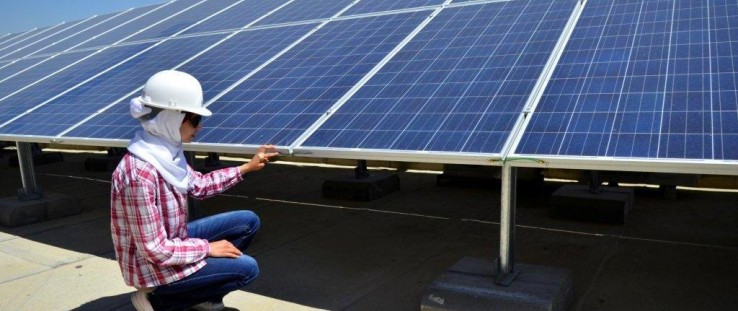 Ala Al Shareef, a power and energy engineering student, installs solar panels on the roof of Jordan’s Ministry of Planning and International Cooperation.
Mohammad Maghayda
Ala Al Shareef, a power and energy engineering student, installs solar panels on the roof of Jordan’s Ministry of Planning and International Cooperation.
Mohammad Maghayda
 Ala Al Shareef, a power and energy engineering student, installs solar panels on the roof of Jordan’s Ministry of Planning and International Cooperation.
Mohammad Maghayda
Ala Al Shareef, a power and energy engineering student, installs solar panels on the roof of Jordan’s Ministry of Planning and International Cooperation.
Mohammad Maghayda
Speeches Shim
Women in Jordan have the highest literacy rate in the Middle East at 97.3 percent. Women with bachelor’s degrees outnumber men almost two to one. Yet, the number of women in Jordan’s workforce is notably low at 16 percent.
According to Jordan’s National Employment Strategy, cultural biases and employers’ perceptions of female productivity have traditionally limited women’s participation in Jordan’s workforce.
USAID is working to change this reality with a multitude of programs that encourage female entrepreneurship, aid women’s networking and promote gender equality.
Amid the challenges, Jordanian women are gradually moving into positions that were unthinkable for them three decades ago, either seen as reserved for males or taboo. Today, 18 percent of the management positions in Jordan’s private sector are going to females, and women in Jordan are proving themselves across sectors, pursuing their passions and supporting themselves and their families.
“For Jordanian women, hard-earned education has been slow to translate into economic progress,” said USAID/Jordan Mission Director Jim Barnhart. “USAID is tackling the barriers that hinder women from working in order to harness the economic and social benefits that women in the workforce produce for their communities.”
Today, Jordan is filled with women who are paving the way for Jordan’s future female generations to build careers, have mentors, and serve as role models. These women are changing perceptions by establishing their own businesses, taking leadership roles and pursuing job opportunities for which their society once found them unfit. Meet three of them.
Manar Harb
For 30 years, Manar Harb volunteered with community organizations and prepared food for visitors who praised her cooking expertise. When her husband died 14 years ago, Harb became her family’s sole breadwinner.
Through numerous hardships, Harb pursued her dream of starting her own business to provide for her family and give back to her community.
She started by cooking traditional foods from her home and selling them locally. With a $21,105 grant from the USAID Local Enterprise Support Project (LENS), she has now rented out an industrial kitchen and is working to turn her small enterprise into a full-fledged catering business that employs others who share her passion.
Home-based businesses offer a path to employment for women in rural areas who need to stay home and care for their families. To date, USAID has supported 300 home-based businesses in product development, marketing, financial management and registration procedures. USAID also provides grants to aspiring female entrepreneurs trying to enter the market and to women with existing businesses who are looking to grow.
Harb advises other women who would like to start their own businesses that it’s important to give back. “Businesses should not just have the purpose of generating profit, but have a human aspect that gives back to the community and a dedication to letting people be a part of the work,” she said.
Muna Haddad
Muna Haddad, another powerful figure in Jordan’s workforce, has a passion for Jordan’s tourist areas. The tourism industry is a huge part of Jordan’s economy, accounting for 14 percent of the country’s GDP and employing approximately 10 percent of women in the workforce.
Haddad is currently president of the Jordan Trail Association, an NGO started by hiking enthusiasts with the mission of upgrading, mapping and promoting the Jordan Trail. It crosses the entirety of Jordan, offering almost 4,000 miles and 36 days of hiking through the country’s diverse landscapes. Haddad says the trails are “an amazing initiative that can scale up local community benefits through tourism exponentially.”
“It is very exciting to be a part of the realization of a dream that many of us had over the years, this almost romantic idea of a long distance trail crossing the Great Rift Valley, retracing ancient trading routes, passing ancient pilgrimage routes and highlighting the unique cultural localities of 52 villages,” she said.
USAID recently awarded the Association a $294,385 grant through its Building Economic Sustainability through Tourism (BEST) project to further enhance and promote the Jordan Trail and bring economic benefits to the villages along its route.
Haddad credits the women of Jordan’s past generations for her success. “Certainly, it’s only because of the battles they fought that we have the opportunities we have today,” she said. “I believe it is our generation’s turn to contribute to the battle for equality.”
She hopes that her work will continue to unite communities and shatter stereotypes. “I genuinely believe that travel plays a role in breaking barriers, bursting social bubbles and reminding us how much we have in common as a human race …. My work is focused on creating transformative experiences for others,” she said.
Ala Al Shareef
Although her family discouraged her from pursuing such a difficult major, Ala Al Shareef was determined to become an engineer and recently earned her undergraduate degree in power and energy engineering. Al Shareef was chosen by USAID to install solar panels on the roof of the Ministry of Planning and International Cooperation last year. She subsequently attended a Women’s Leadership Forum and Networking Event hosted by the USAID Energy Sector Capacity Building project, along with 250 women and men from across the sector to promote the advancement and professional growth of women in energy.
Al Shareef believes that women are becoming more and more prevalent in the engineering profession. “It’s definitely improving. We’ve witnessed times where parents wouldn’t even let their daughters go to university or finish their educations,” she said. “Now everything is changing, including mindsets. Of course, you still have parents who think like that, but the future is a major improvement from the past, and women have so many more opportunities now.”
Because Jordan imports 97 percent of its energy sources, the up-and-coming energy sector is vital to the country’s well-being. Investors are taking great interest in Jordan’s efforts to adopt wind and solar power, and more energy service providers are entering the market.
Women’s participation in the energy sector is particularly low due to the perception that the sector requires a great deal of manual labor, leading to discrimination against women in advancement opportunities. Additionally, very few networks exist to support mentorship for those currently working within the energy sector.
Al Shareef encourages women who want to pursue engineering to persevere. “Nothing should get in the way of your ambition. If you love the thing you’re after, don’t let anything stop you,” she said. “Through working hard and proving yourself, you can show your employer and your society that your abilities are equally as impressive as men’s, and that, in the end, you may even deliver a better product.”
‘A Change-Maker Within My Own Circle’
By Natasha Padgitt
As a scientist, Rana Dajani is trained to conduct experiments and pursue research, contributing to new discoveries that help solve problems. When she returned to Jordan after completing her Ph.D. in molecular biology at the University of Iowa in 2005, she recognized two challenges and went about developing solutions not based on the scientific method, but a more time-tested one: lessons from her mother and father.
Dajani, an associate professor at the Hashemite University, attributes an important life lesson to her mother: We are responsible for what goes on around us.
“My mother inspired me to be a change-maker within my own circle—within my reach,” she said.
Dajani often took her children to their town’s public library when they lived in the United States. Upon returning to Jordan, where there are few public libraries, she decided to make her own library, with the long-term goal of establishing “a library in every neighborhood.”
“I knew the key to plant the love of reading was reading aloud to children,” she said. “So I started reading aloud to children in my neighborhood, which is how We Love Reading started, never dreaming that it would become a social movement all over the world in 27 countries.”
USAID’s Early Grade Reading and Mathematics Project has partnered with We Love Reading to set up community libraries. We Love Reading has also received support from UNICEF and the U.S. Department of State’s Middle East Partnership Initiative. To date, the initiative has established 1,000 libraries in Jordan alone.
The success of We Love Reading “inspired my entrepreneurship and innovation in developing solutions for challenges in my environment,” she said, including the fact that women in science lack the type of support network their male counterparts have.
This led Dajani to establish the Three Circles of Alemat, a Jordan-based model to establish a mentoring program among women in academia across the globe. “Alemat” is the Arabic word for “female scientists.” Her research is funded by USAID through Partnerships for Enhanced Engagement in Research.
Dajani’s love of science was instilled at a young age by her father, a physician who would read the latest scientific journals and discuss the latest theories and discoveries with his family, along with books and magazines about philosophy, art, history, geography and other subjects.
She has instilled this love of discovery in her own four children. “We brought up our children to believe in themselves and pursue their passion, whatever it is,” she said.
For Dajani, this is a collective societal responsibility to all young people. “What I hope to see in the future is a generation of women and men who are educated, know their passion and what they want, and pursue that passion—and a society that respects and supports the whole spectrum of what success means,” she said. “This way we will be creating a generation of confident, proud, change-makers—citizens and leaders who will make this world a better place.”


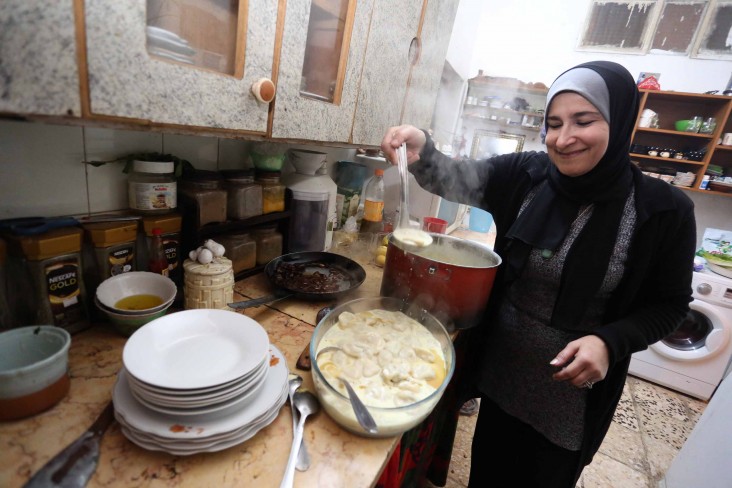
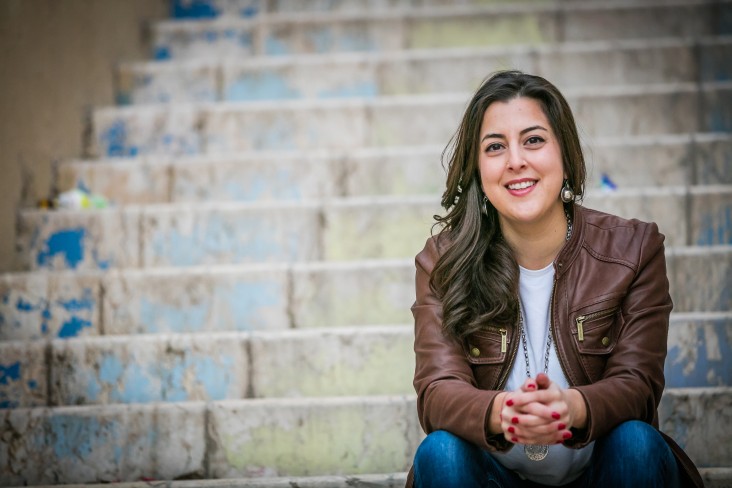
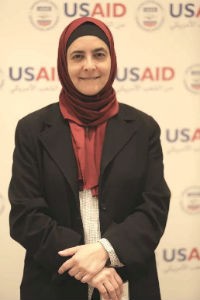
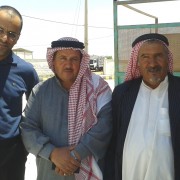
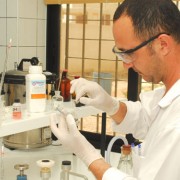
Comment
Make a general inquiry or suggest an improvement.